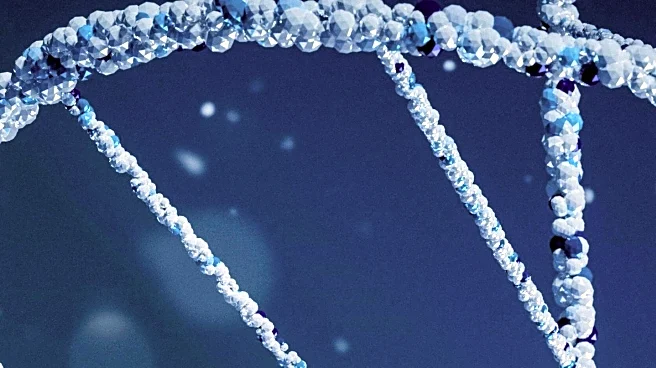What's Happening?
Researchers at the University of Tokyo have identified massive strands of extrachromosomal DNA, termed 'Inocles,' within bacteria in the human oral microbiome. These DNA elements, previously undetected due to limitations in conventional sequencing methods, are believed to play a significant role in how oral bacteria adapt and survive in the dynamic environment of the mouth. The discovery was made possible through advanced long-read sequencing techniques, which allowed scientists to reconstruct large genetic elements. Inocles, found in approximately 74% of humans, carry genes that may contribute to stress resistance and DNA repair, potentially linking them to oral health issues such as gum disease and cavities, and even serious conditions like cancer.
Why It's Important?
The discovery of Inocles represents a significant advancement in microbiome research, particularly in understanding the oral microbiome's complexity and its impact on human health. By uncovering these large DNA elements, researchers can explore new avenues for diagnosing and treating oral health conditions. The potential link between Inocles and diseases like cancer could lead to breakthroughs in identifying biomarkers for early detection and prevention. This research highlights the importance of developing more sophisticated sequencing technologies to uncover hidden genetic elements that may influence health outcomes.
What's Next?
The research team plans to develop stable methods for culturing bacteria containing Inocles to further investigate their functions and potential spread between individuals. This will involve laboratory experiments and computational simulations to predict the roles Inocles may play in oral health. Understanding these elements could lead to new strategies for managing oral diseases and exploring their potential as markers for serious health conditions. The findings may also prompt further studies into the broader implications of extrachromosomal DNA in other microbiomes.
Beyond the Headlines
The discovery of Inocles opens up ethical and cultural discussions about the implications of microbiome research on personal health data and privacy. As scientists delve deeper into the genetic makeup of the human microbiome, questions arise about how this information is used and shared. Additionally, the potential for these findings to influence public health policies and preventive healthcare strategies could lead to shifts in how oral health is managed and perceived.









